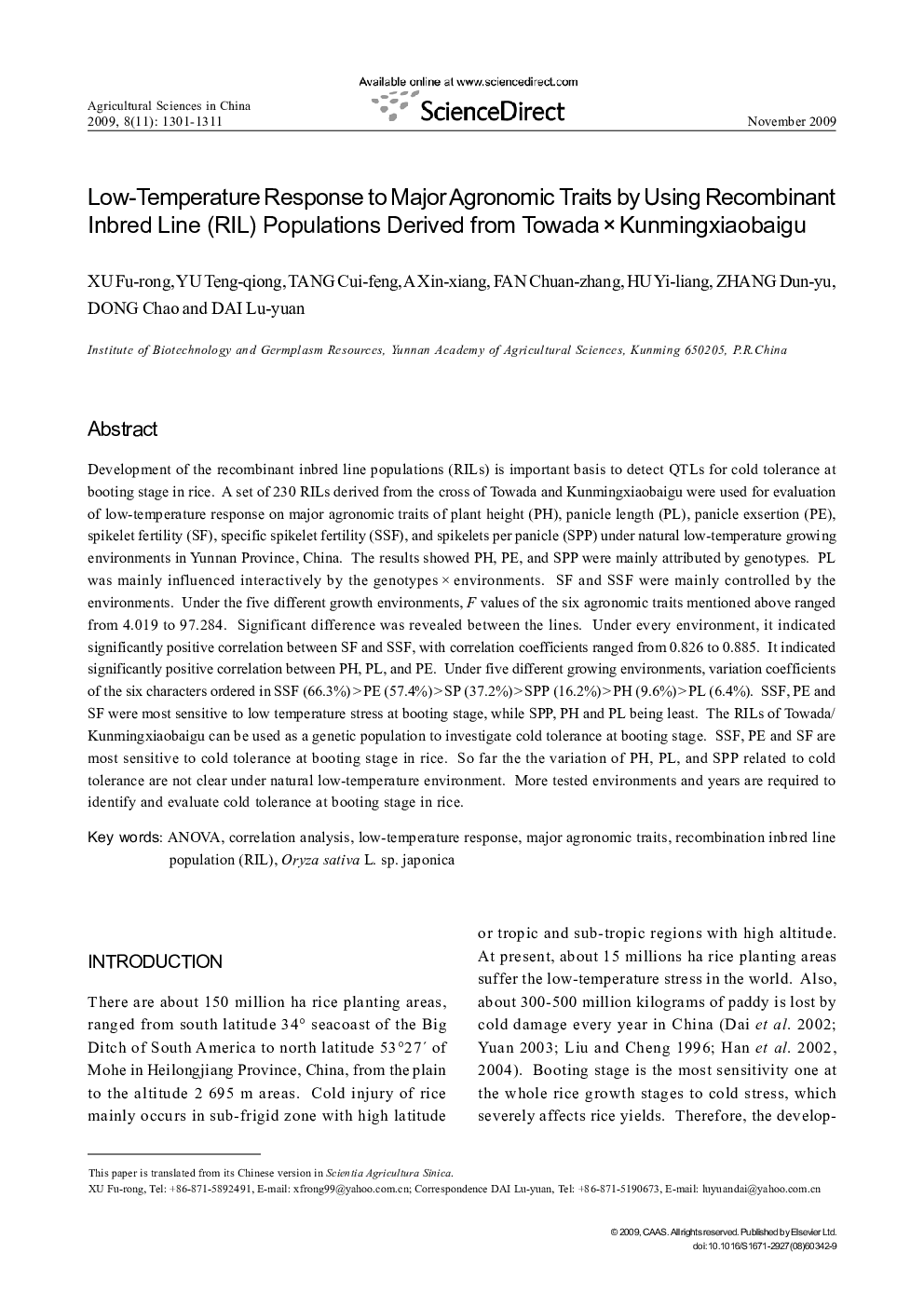| Article ID | Journal | Published Year | Pages | File Type |
|---|---|---|---|---|
| 4490291 | Agricultural Sciences in China | 2009 | 11 Pages |
Development of the recombinant inbred line populations (RILs) is important basis to detect QTLs for cold tolerance at booting stage in rice. A set of 230 RILs derived from the cross of Towada and Kunmingxiaobaigu were used for evaluation of low-temperature response on major agronomic traits of plant height (PH), panicle length (PL), panicle exsertion (PE), spikelet fertility (SF), specific spikelet fertility (SSF), and spikelets per panicle (SPP) under natural low-temperature growing environments in Yunnan Province, China. The results showed PH, PE, and SPP were mainly attributed by genotypes. PL was mainly influenced interactively by the genotypes × environments. SF and SSF were mainly controlled by the environments. Under the five different growth environments, F values of the six agronomic traits mentioned above ranged from 4.019 to 97.284. Significant difference was revealed between the lines. Under every environment, it indicated significantly positive correlation between SF and SSF, with correlation coefficients ranged from 0.826 to 0.885. It indicated significantly positive correlation between PH, PL, and PE. Under five different growing environments, variation coefficients of the six characters ordered in SSF (66.3%) > PE (57.4%) > SP (37.2%) > SPP (16.2%) > PH (9.6%) > PL (6.4%). SSF, PE and SF were most sensitive to low temperature stress at booting stage, while SPP, PH and PL being least. The RILs of Towada/Kunmingxiaobaigu can be used as a genetic population to investigate cold tolerance at booting stage. SSF, PE and SF are most sensitive to cold tolerance at booting stage in rice. So far the the variation of PH, PL, and SPP related to cold tolerance are not clear under natural low-temperature environment. More tested environments and years are required to identify and evaluate cold tolerance at booting stage in rice.
